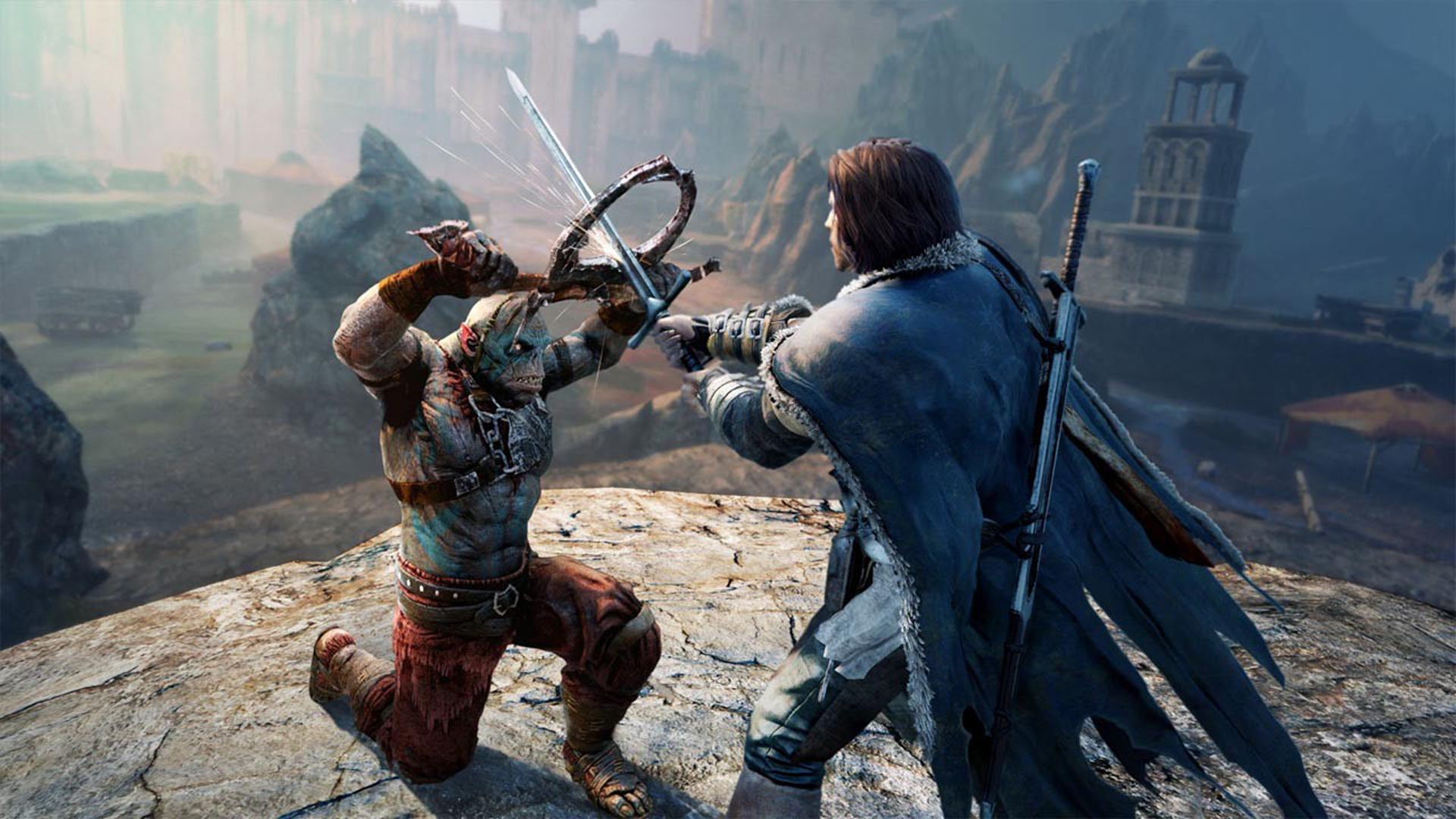
Middle-Earth: Shadow of Mordor developer Monolith patented the game's impressive Nemesis system, potentially explaining why the idea hasn't shown up elsewhere.
As pointed out in the Game Maker's Toolkit video below (around the 19 minute mark), Monolith filed a patent for the system back in 2015, securing the idea of "methods for managing non-players characters [...] based on character hierarchies and individualized correspondences" for themselves.
The Nemesis system - introduced as a major selling-point for 2014's Shadow of Mordor and then continued in 2017's Shadow of War - was a process by which the games created their own intricate web of orcs, each with their own strengths, weaknesses, and relationships to other enemy NPCs. Take out a captain, for example, and a subordinate could rise to take his place. Humiliate that same captain by exploiting his fear of fire, and his peons might stage something of a hostile takeover. Fail to take a character out, and they might rise up through the ranks to torment you again later on.
The system was extremely well-received when Shadow of Mordor released, prompting plenty of discussion as to which other games would be able to make use of it. Outside of Shadow of War, however, no Nemesis-esque system ever showed up, likely the result of the 2015 patent - which progressed to its final stage last year - severely limiting the number of devs prepared to build on Monolith's idea.
As Game Maker's Toolkit points out, the patent hasn't entirely ruined the system's spread. Games like Assassin's Creed Odyssey and Watch Dogs Legion feature similar ideas, and Monolith's publisher, Warner Bros, is rumored to be utilizing something a little like Nemesis in Hogwarts Legacy and future Batman games.
For more adventures in Middle-Earth, Lord of the Rings: Gollum is coming in 2022.
Sign up to the GamesRadar+ Newsletter
Weekly digests, tales from the communities you love, and more

I'm GamesRadar's news editor, working with the team to deliver breaking news from across the industry. I started my journalistic career while getting my degree in English Literature at the University of Warwick, where I also worked as Games Editor on the student newspaper, The Boar. Since then, I've run the news sections at PCGamesN and Kotaku UK, and also regularly contributed to PC Gamer. As you might be able to tell, PC is my platform of choice, so you can regularly find me playing League of Legends or Steam's latest indie hit.


